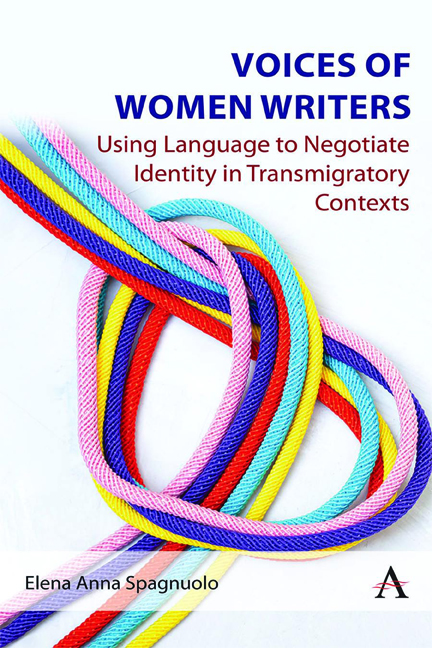Book contents
- Frontmatter
- Contents
- Introduction
- 1 Revoicing Female Migrant Identities through Creative Multilingualism
- 2 Gianna Patriarca: Self-Translating as a Strategy of Re-grounding
- 3 Dôre Michelut: Coming to Terms with the Mother Tongue
- 4 Licia Canton: Rewriting the Italian Mother (Tongue, Land)’s Legacy in Self-Translation
- 5 Francesca Duranti: ‘Trans-Writing’ the Self through Acts
- Conclusion
- References
3 - Dôre Michelut: Coming to Terms with the Mother Tongue
Published online by Cambridge University Press: 01 March 2024
- Frontmatter
- Contents
- Introduction
- 1 Revoicing Female Migrant Identities through Creative Multilingualism
- 2 Gianna Patriarca: Self-Translating as a Strategy of Re-grounding
- 3 Dôre Michelut: Coming to Terms with the Mother Tongue
- 4 Licia Canton: Rewriting the Italian Mother (Tongue, Land)’s Legacy in Self-Translation
- 5 Francesca Duranti: ‘Trans-Writing’ the Self through Acts
- Conclusion
- References
Summary
The Emergence of a Multilingual Paradigm
Dorina Michelutti, better known as Dôre Michelut (the Friulian version of her name), is also an Italian-Canadian author. She was born in 1952 in Sella di Rivignano, a town near Udine, in the region of Friuli. Her family migrated to Canada in 1958 and settled in Toronto. After graduating from high school in 1972, she spent five years in Florence, studying Italian at the University of Florence. She returned to Canada in 1981, where she continued to study at the University of Toronto. Meanwhile, she began to write and publish in literary magazines. Her first book of poems, Loyalty to the Hunt, was published in 1986 by Guernica Editions. In 1994, this book also appeared in the French version, entitled Loyale à la chasse. In 1989, she published Coming to Terms with the Mother Tongue. In 1990, in cooperation with five writers, she published Linked Alive and the simultaneous French edition, Liens. In 1990, she also published Ouroborous: The Book That Ate Me, containing poems in English, Italian and Friulian. In 1993, she published A Furlan Harvest, a collection of poems written in Italian, English and Friulian, by women of Friulian descent living in Canada. After 1996, Michelut started travelling and working around the world. In 2005, she received a Master of Arts in Applied Communication from Royal Roads University in Victoria, BC. She died of cancer in Oman in March 2009. She was teaching advanced speech, multimedia and technical communication at Al Akhawayn University in Ifrane.
Michelut's works have appeared in many literary publications and have been anthologized both in Canada and Italy. Her literary production constitutes a form of experimental fiction, that is, a form of writing defined by its innovative nature. She continually breaks linguistic, narrative and stylistic norms and conventions, combining different styles and discourses. On the level of content, her poems are thematically obscure, difficult to analyse, and engage the reader with different levels of interpretation. Through this innovative approach to writing, ‘discursive borders are constantly relativized and transgressed, thereby intensifying the work's migratory character’ (Frank 2008, 20). This inventive approach is also evident in her experiments with different poetic forms, such as a series of renga, an Asian form of social poetry.
- Type
- Chapter
- Information
- Voices of Women WritersUsing Language to Negotiate Identity in (Trans)migratory Contexts, pp. 57 - 84Publisher: Anthem PressPrint publication year: 2023



